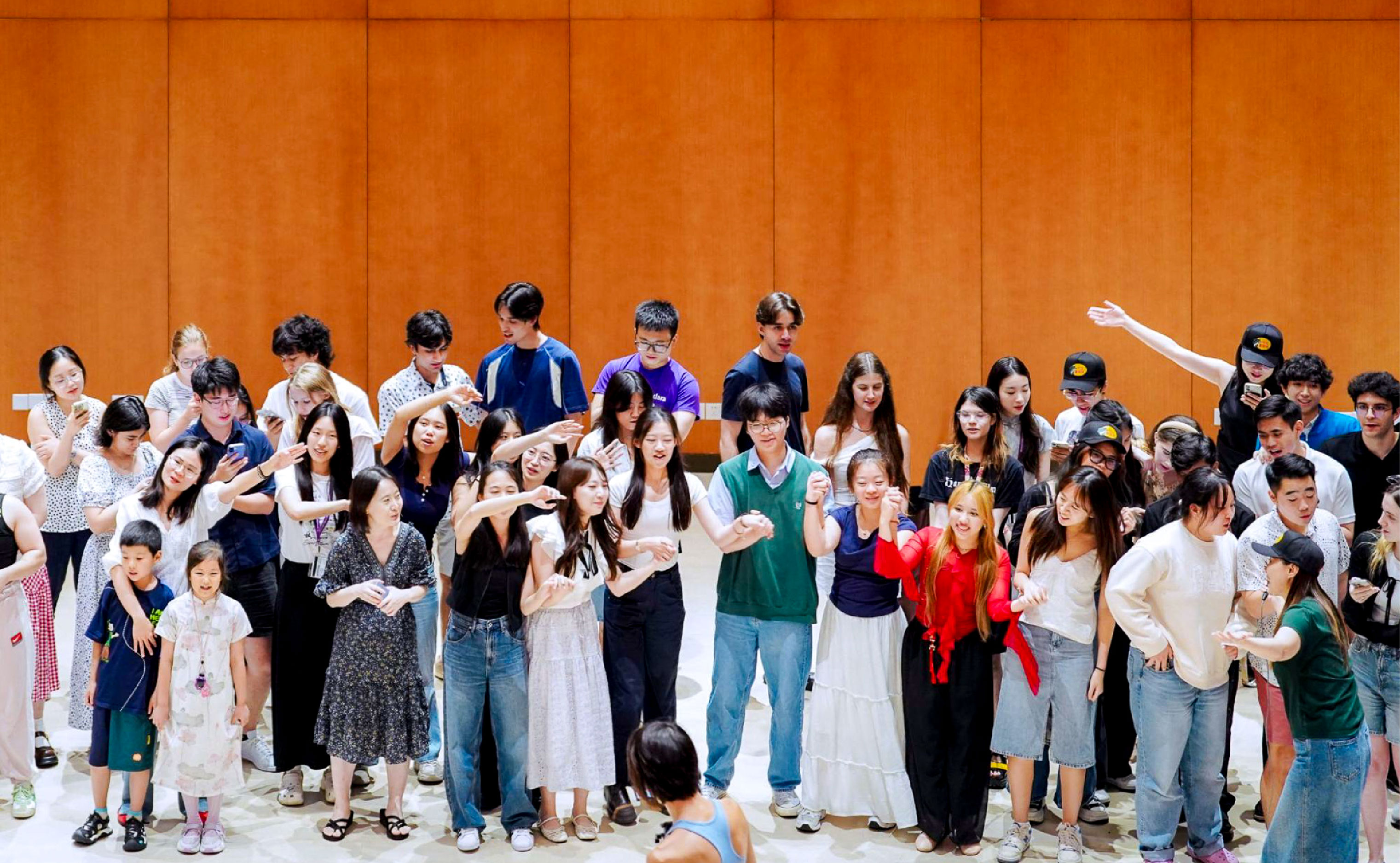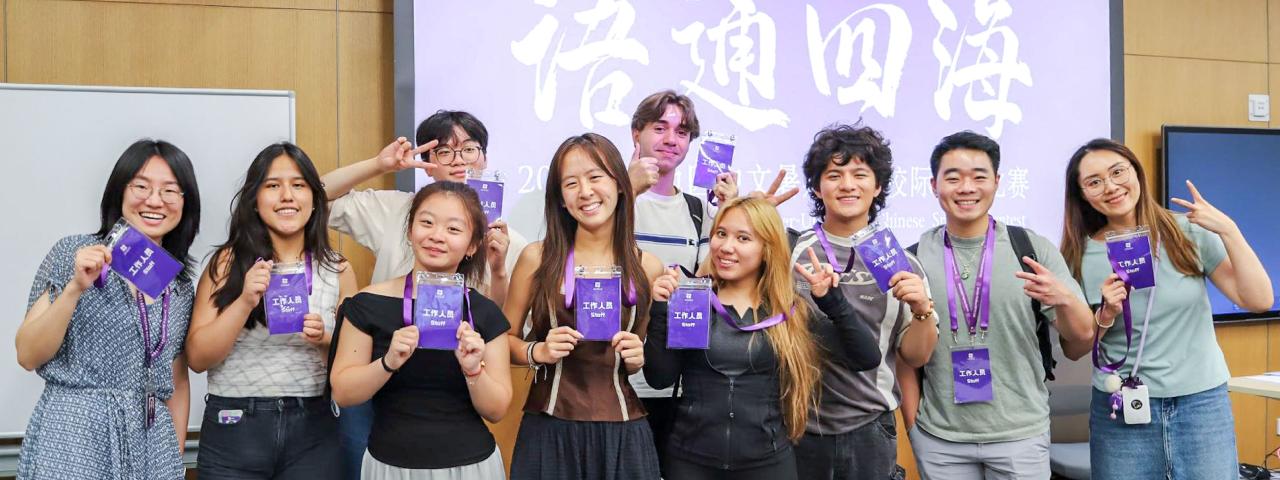
On day one of NYU Shanghai’s annual Summer Chinese Immersion Program, students quickly realized it would be no trip to the beach. Instead they signed their names on the program’s language pledge and dived headfirst into nine weeks of intensive Mandarin learning.
Now in its seventh year, the program welcomed 41 students this year from 17 universities and across 14 countries. For nine weeks they checked their native languages — including English, French, Korean, and Khmer—at the door; in the program, Mandarin was the only option.
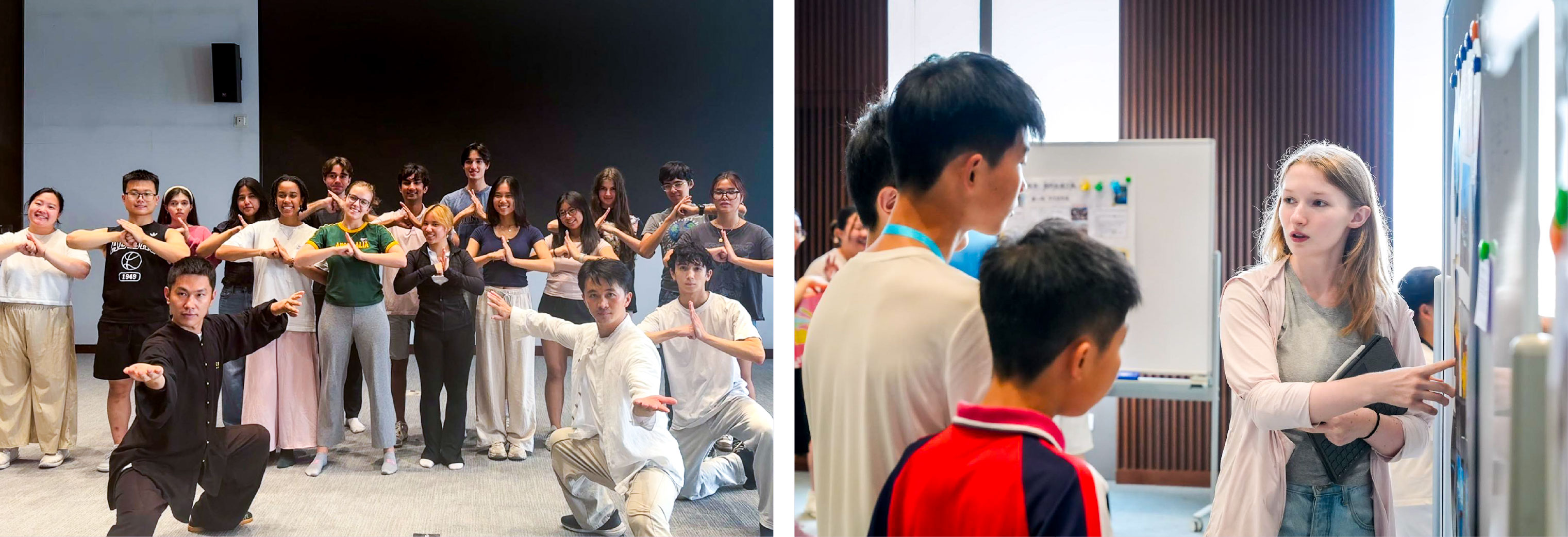
Right: Amelia Tuttle (right) shared her travel experiences with the children of NYU Shanghai’s fourth annual College and Career Lab (CCL).
To meet growing demand, this year the program expanded its proficiency levels, offering courses for beginner to advanced students. The intensity was formidable: two semesters’ worth of coursework compressed into just over two months.
The payoff was undeniable though: by the end of the program the students weren’t just learning Mandarin, they were living it, immersed in the language and culture in ways that pure textbook learning could never match. And students from NYU’s global network earned a whopping eight academic credits.
For the first time, program instructors and teaching assistants participated in a week of faculty development workshops designed and led by Chih-p’ing Chou, professor emeritus of East Asian Studies at Princeton, founder of the Princeton in Beijing (PiB) summer program, and former long-time director of the Chinese Summer School at Middlebury College.
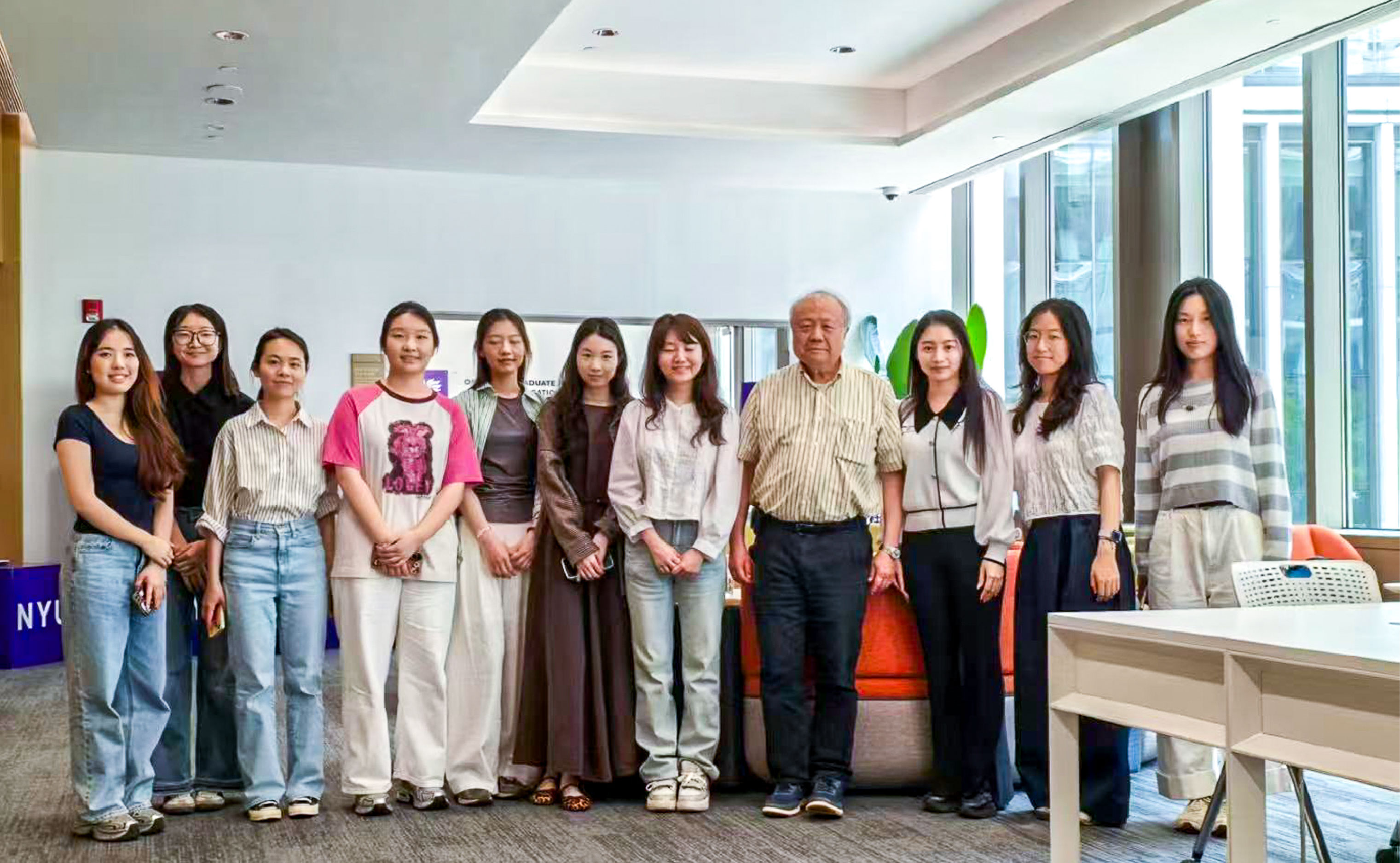
“The professional development week reflects the program’s core educational philosophy and methods, ensuring that instructors from diverse backgrounds can provide the highest-quality teaching within a shared framework. This represents our deepest commitment to every student entering the program,” said program director Zou Xin, associate professor of Global China Studies, who led the pedagogical and structural reform and redesign of the immersion program, and oversaw its implementation on site throughout the summer. The faculty development week will not be a one-time initiative but is set to become a new tradition of the program going forward. “In this way, we can pass on our knowledge and experience to postgraduate students in Chinese Language Pedagogy, treating them as future colleagues in this field and supporting their professional growth through practice. In this sense, the professional development week is also our way of contributing back to the field.”
The faculty used innovative ways of teaching Mandarin, combining traditional classes with cultural immersion activities. Program faculty and teaching assistants lived alongside students, helping with pronunciation and language practice, and leading preview and review sessions that often stretched late into the night.
Each week students attended morning classes, practiced in small groups, met with instructors one-on-one, and participated in China Studies lectures and cultural field trips. They explored Shanghai neighborhoods, visited locally headquartered companies like Trip.com, and traveled to Suzhou and nearby water towns.
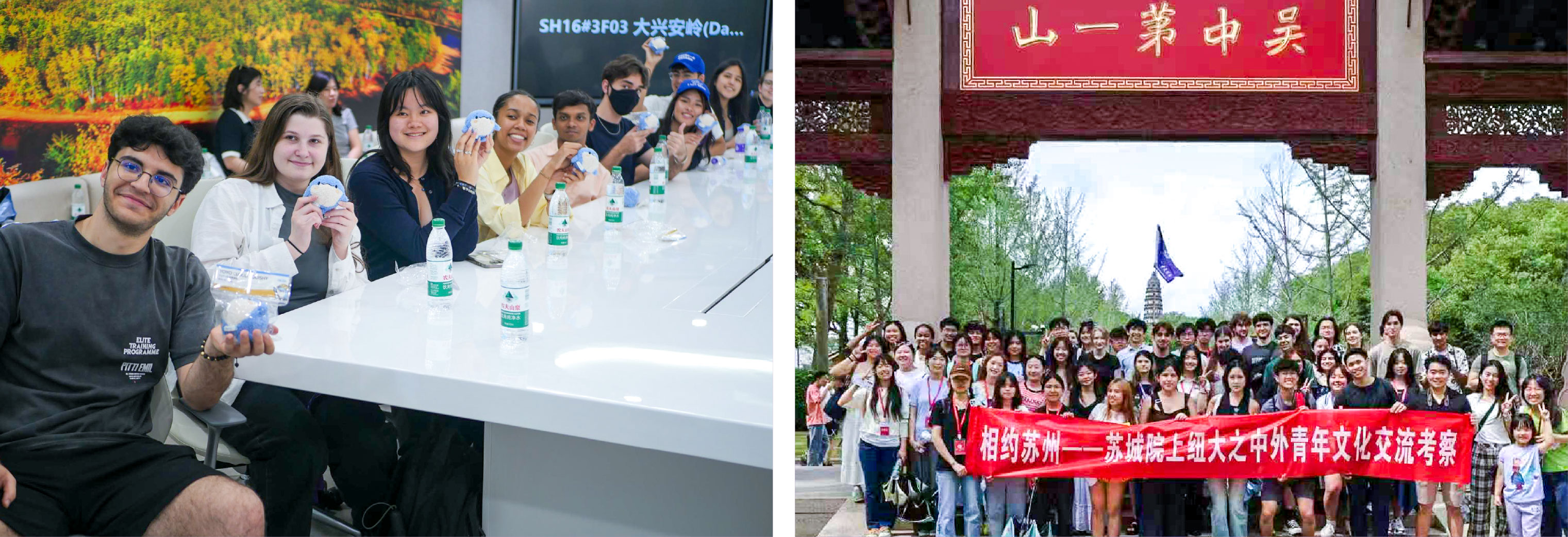
At mealtimes, the Immersion Program students would find themselves regularly joining “Chinese tables” on and off campus to practice their language skills. Some students even wore self-designed baseball caps with a phrase in Chinese to remind others: “Please be patient, I have a Language Pledge.”
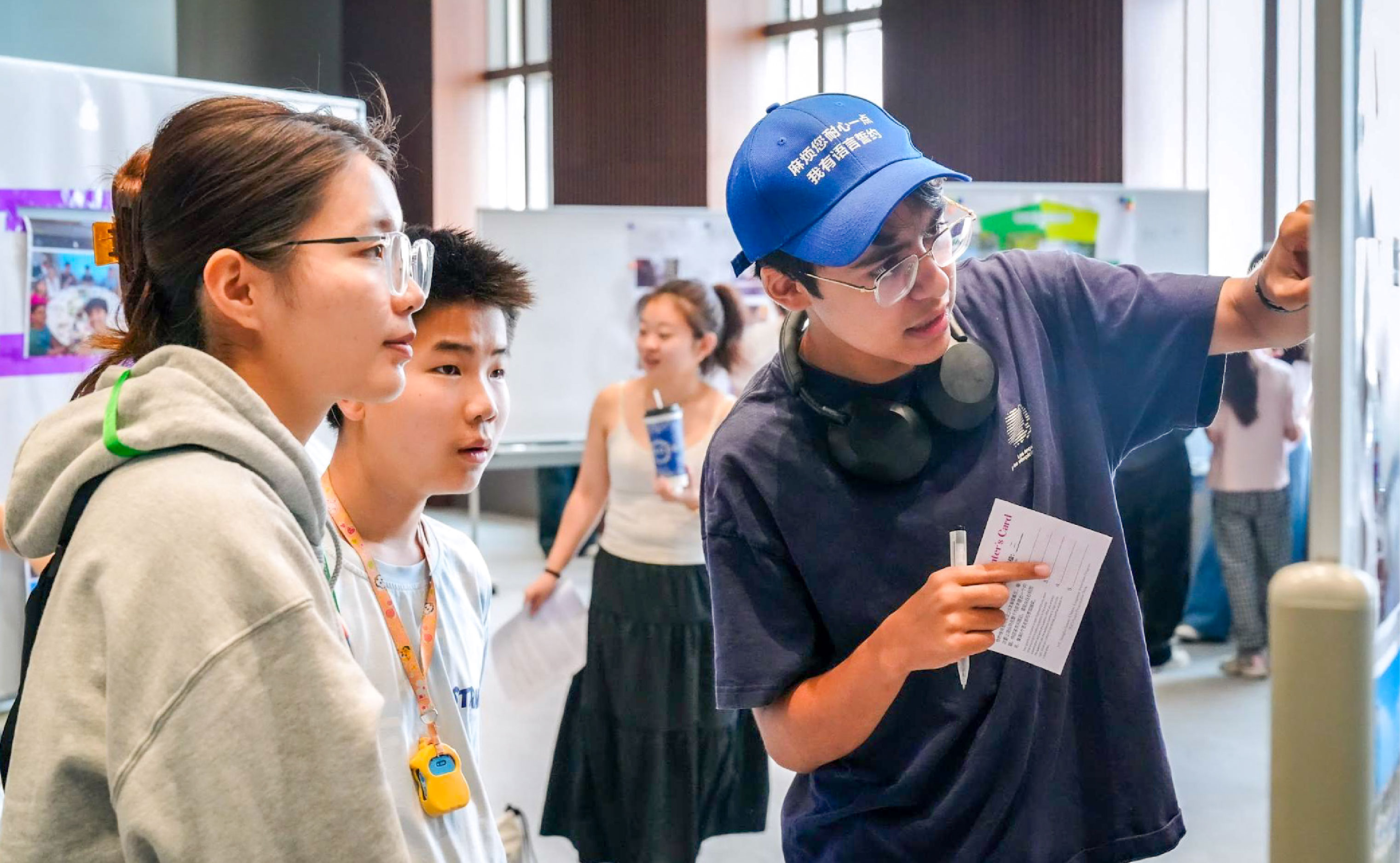
Zou said it was more than just about adhering to the pledge. “If Chinese learners won’t even speak to their teachers and classmates in Chinese,” she asked, “how can they feel proud enough to use it with strangers outside?” She explained that the pledge is less about rules and enforcement, and more about shared responsibility—creating an environment where teachers and students alike support one another, take pride in their efforts, and together build a close-knit community striving for excellence in Chinese language teaching and learning.
Jessica Cao, a second-year international relations major from Georgetown University, was surprised to encounter familiar concepts in her Chinese class. “It was amazing—this was content from my major, but I was learning it in Chinese. It felt really exciting,” she said.
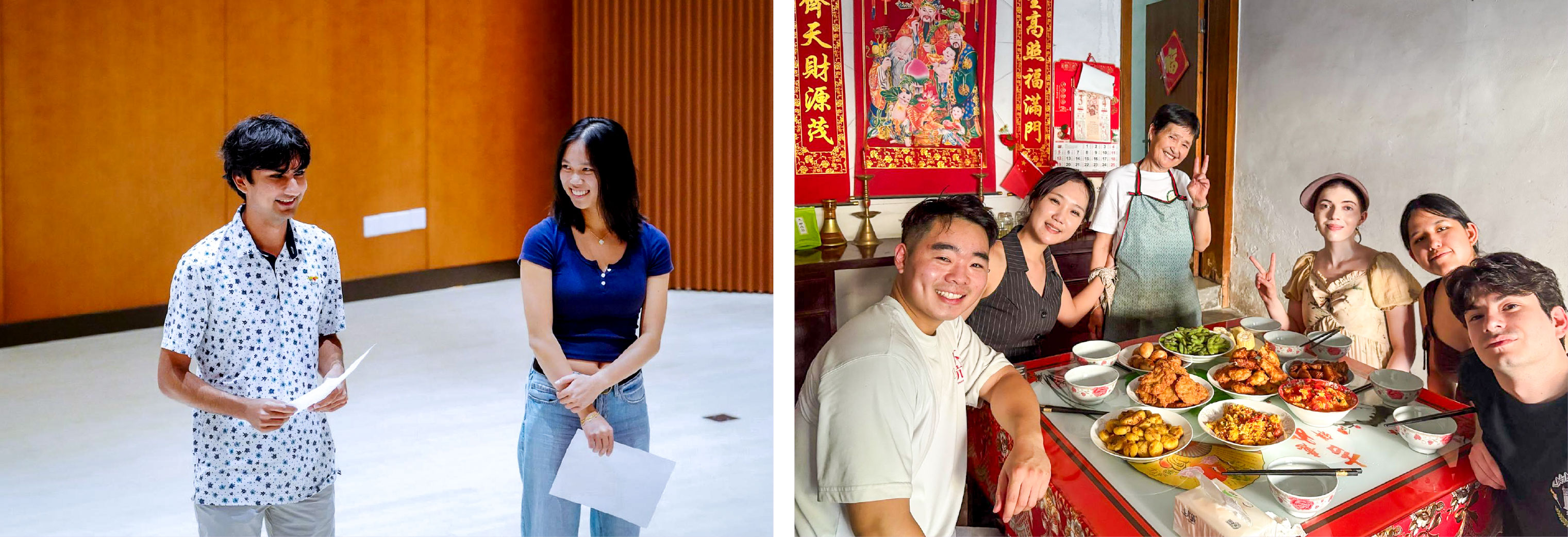
Right: Experiencing farmhouse cuisine in Nanxun Old Town
Cao went on to win second prize in an intercollegiate Chinese speech contest. “I used to feel like I was two different people in English and Chinese,” she said. “Now I’ve found my ‘English personality’ in Chinese, and I feel proud.” Her confidence carried beyond the classroom, as she chatted with locals. “I used to be scared of making mistakes,” she said. “Now I just talk.”
Belgian student Thomas Van Cleuvenbergen ’28 explored Chinese language learning through music, playing violin and discovering a new passion for the guqin, a traditional Chinese stringed instrument. “I’m really happy I could meet Chinese friends my age through these activities,” he said.
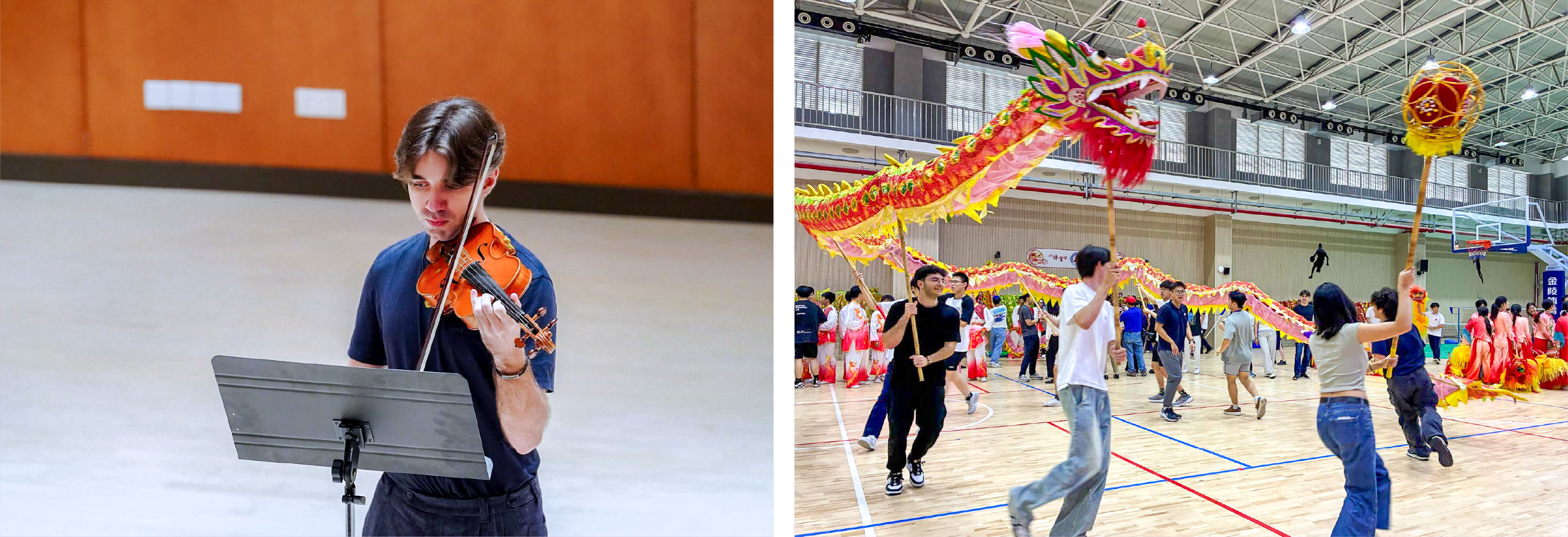
Right: Students experienced traditional Chinese culture during a visit to Sanlin High School.
NYU Abu Dhabi student Anna Lipiec, who grew up in Poland, recalled the thrill of realizing she could understand most of an exhibition on architect I.M. Pei at Power Station of Art, Shanghai. “My brain is used to staying in Chinese now—I don’t translate so much in my head,” she said.
Alex Lin, a recent Cornell graduate and a total beginner in the program, said the summer was transformative. “I was terrified at first,” he admitted. “But now, I can actually chat with classmates at lunch and express myself with confidence. There’s not another place in the world where you can learn Mandarin as fast as here. We all feel this summer was rewarding.”

Center: Alex Lin (second from left) and his classmates visited an exhibit on I.M. Pei at the Power Station of Art.
Right: Group photos after at the intercollegiate Chinese speech contest
For Steven Chen ’28, the program was as much about identity as it was aboutlanguage. He used to feel self-conscious ordering food at Chinese restaurants in his hometown of New York, he said. “I joined at a time when I felt lost as a Chinese heritage learner living between two cultures, without the confidence or ease I thought I should have.—and now I’ve found that sense of belonging and a way forward,” he said.
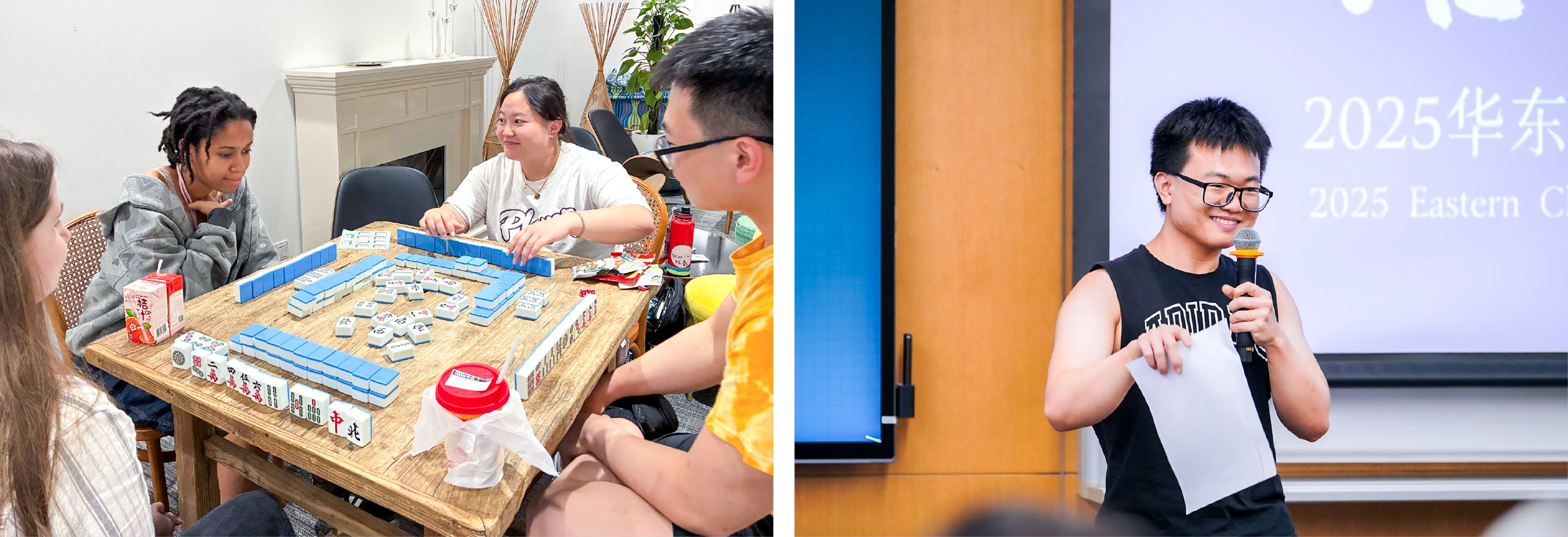
Right: Steven Chen at the intercollegiate Chinese speech contest
Over nine weeks, Steven and his classmates and instructors bonded through karaoke nights, evening study sessions, and late-night conversations. At the closing ceremony, they took the stage together to sing a classic Mandopop song “Tian Mi Mi” (Sweet as Honey). “It felt like family,” he said.
